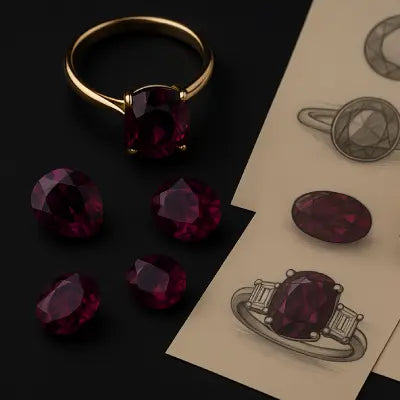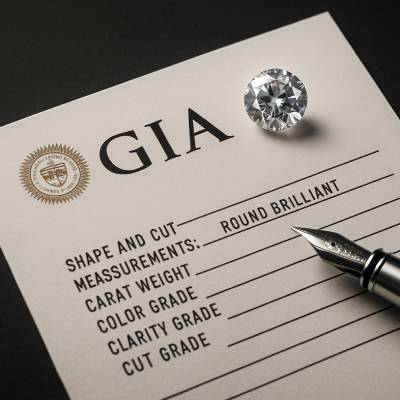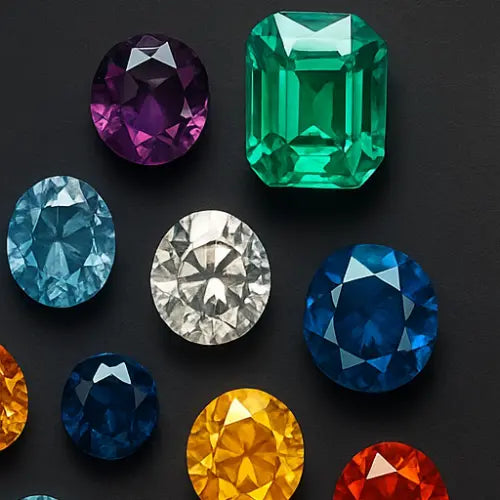From your morning coffee to your evening plans, your jewelry moves through your life, and so should your gemstones. Bay Area High end jewelry stores often emphasize this harmony, helping clients choose stones that suit their lifestyle. But not every stone is suited to that kind of daily rhythm. Some are born to be resilient; others are delicate by nature. Understanding the difference is the key to choosing pieces that last beautifully.
If you’re shopping for something you’ll wear often — especially an engagement gemstone ring or your next signature piece — durability should be as much a part of the decision as style.
The Mohs hardness scale explained
Gemstone durability depends largely on how easily a stone can be scratched, cracked, or damaged. That’s where the Mohs hardness scale comes in. It measures how hard a gemstone is by how resistant it is to scratches.
The Mohs hardness scale has its roots in the early 1800s, when German mineralogist Friedrich Mohs set out to create a practical way to measure the scratch resistance of natural materials. At the time, there was no simple method for determining how hard one mineral was compared to another, so Mohs devised a scale based on direct observation.
He arranged ten minerals in order of hardness, assigning each a number from 1 to 10. The concept was straightforward: if one mineral could scratch another, it was considered harder. For instance, if quartz could scratch feldspar, quartz ranked higher on the scale. Talc, the softest mineral, became the baseline at 1, while diamond, unrivaled in hardness, was placed at the top with a score of 10.
Diamond, with a score of 10, is the hardest natural material on Earth. It can’t be scratched by anything except another diamond. But here’s an important detail: even diamonds can chip or break if struck hard or at the wrong angle. Hardness only tells us how well a stone resists surface scratches—not whether it can survive a drop or a hit.
This system wasn’t built in a lab. It was made for real-world use, allowing gemologists and jewelers to test mineral hardness using common samples quickly. Over two centuries later, the Mohs scale is still a trusted tool in jewelry design and gemstone selection.
Best Gemstones for Everyday Wear
If you’re looking for jewelry you can wear daily, choose gemstones with a hardness of 7 or higher. These stones hold up well to everyday activities, resist scratching, and are less likely to get damaged during regular use.
Here are some excellent everyday choices:
- Diamond (10) – Ideal for engagement rings and daily wear, but still needs a secure setting to prevent chips.
- Sapphire & Ruby (9) – Durable and colorful. Great for rings and bracelets.
- Spinel (8) – Tough, brilliant, and available in many colors.
- Topaz (8) – Beautiful and strong, though edges can chip with hard knocks.
- Aquamarine (7.5–8) – A lovely blue gem with solid durability.
- Emerald (7.5–8) – Gorgeous, but often has internal fractures. Needs gentle wear and protective settings.
- Quartz (7) – Includes popular stones like amethyst and citrine. Good for pendants, earrings, and occasional rings.
Gems That Need Extra Care
Some gems are naturally softer and more delicate. They can scratch easily and may be damaged by everyday elements like heat, sunlight, perfume, or lotions. These gems are best worn occasionally and with a little extra attention.
Here are some of the most sensitive stones and their Mohs hardness ratings:
- Pearl (2.5–4.5) – Very soft and porous. Avoid exposure to perfumes, hairsprays, and cosmetics.
- Opal (5.5–6.5) – Prone to scratching and sensitive to heat and dryness.
- Turquoise (5–6) – Porous and easily stained. Keep away from water and oils.
- Amber (2–2.5) – One of the softest organic gems. Can scratch with the slightest pressure.
- Coral (3–4) – Organic and delicate. Avoid contact with skin products and moisture.
These stones should always be stored separately, in soft-lined boxes or pouches. Clean them gently with a damp cloth, and avoid using ultrasonic or steam cleaners.
Jewelry That Lives With You
At the end of the day, the best gemstone is one that fits your lifestyle. If you love bold rings, opt for stones with high hardness and toughness. If you adore delicate designs, choose settings that shield and support the gem. Durability doesn’t mean compromising on style. It means choosing wisely, so your favorite pieces can be worn, loved, and passed on.
Explore our curated collection of fine jewelry, where every stone is carefully selected for both its beauty and its wearability. Because the best jewelry isn’t just admired, it’s lived in.






